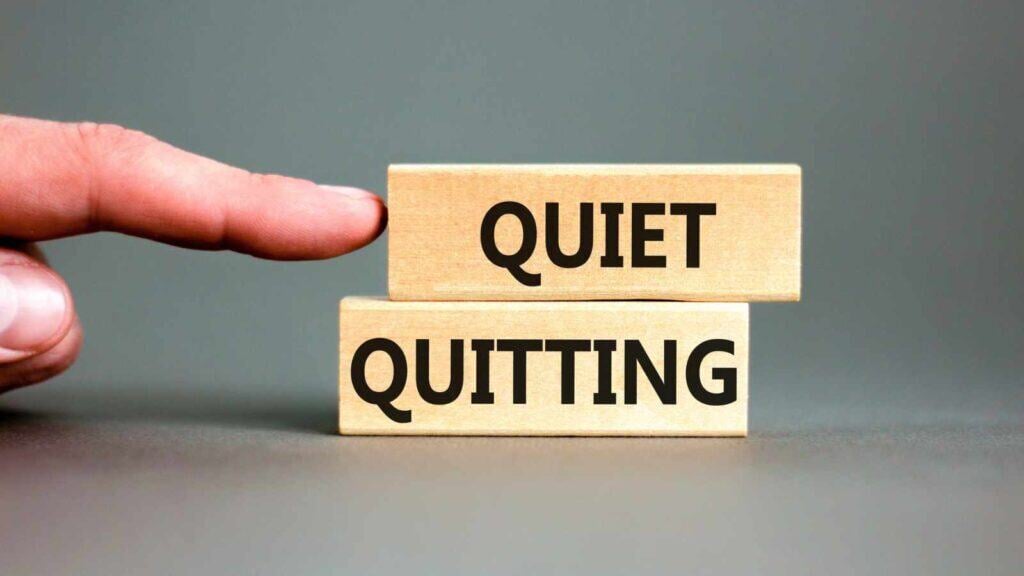10 reasons why Americans are rethinking the value of hard work
Ever feel like you’re running on a hamster wheel that’s picking up speed, but the scenery never changes?
The age-old American belief that hard work is the golden ticket to success is facing a serious crisis of faith. A profound shift is underway, with data showing that for millions, the promise of hard work no longer matches the payoff.
This isn’t just a feeling. A recent Wall Street Journal-NORC poll found that nearly 70 percent of people believe the American dream—the idea that hard work leads to success—is no longer true or never was.
Let’s be clear: this isn’t about laziness. It’s a smart and rational response to a world that has undergone dramatic change. Here are the 10 real reasons why so many of us are questioning the “pull yourself up by your bootstraps” narrative.
The promise of the American Dream feels broken

The deal used to be simple: work hard, get ahead. But for a huge number of Americans, that contract feels null and void. The pessimism is palpable, with a WSJ poll showing it’s the highest it’s been in nearly 15 years of surveys.
The numbers are pretty stark. A separate poll by the Rainey Center found that 66% of American voters believe the American Dream has become less attainable.
Your paycheck hasn’t kept up with your output
You’re working harder and smarter than ever, but your bank account doesn’t reflect it. For decades, the understanding was that as the country got more productive, workers would share the wealth. That link is officially broken.
The data from the Economic Policy Institute is jaw-dropping. From 1979 to 2019, net productivity in the U.S. soared by 70%, but the hourly pay for a typical worker crept up by just 12%.
Think about that for a second. You’re producing 70% more for your company, but you’re only seeing a 12% bump in your paycheck for it. This isn’t a fluke; it’s a four-decade trend of wage stagnation that has left workers feeling shortchanged.
When hard work is exploited instead of rewarded, it erodes trust in the very institutions that are supposed to ensure fairness. This loss of faith is a key reason why concepts like “quiet quitting” have become so popular—they are a logical act of self-preservation in a system that feels rigged.
“Hustle culture” led to mass burnout
For the last decade, we were sold a toxic bill of goods: #RiseAndGrind, 80-hour workweeks, and “sleep when you’re dead.” This glorification of the grind, which some experts refer to as “workism,” has turned jobs into all-consuming identities.
But our bodies and minds have waved the white flag. It’s become so widespread that the World Health Organization (WHO) now officially recognizes burnout as an “occupational phenomenon.” It’s not just “being tired”; it’s a legitimate syndrome caused by chronic workplace stress.
And here’s the kicker: all that hustling isn’t even effective. A landmark study from Stanford University found that your productivity nosedives after working 50 hours a week. Anything beyond 55 hours is pretty much wasted effort. You’re just spinning your wheels and wrecking your health.
Workers are “quiet quitting” and walking away

Gallup’s 2024 data on the American workplace is grim. A mere 21% of employees are actually engaged with their work. The rest? They’ve checked out.
A massive 62% of employees are “not engaged,” a state now famously known as “quiet quitting.” This isn’t laziness. It’s about setting boundaries. It’s about doing the job you were hired for—and nothing more. It’s a silent protest against the expectation of free labor.
“Quiet quitting” has become the modern, decentralized form of labor action. It’s a way for individuals to reclaim their time and energy without the risk of getting fired.
It’s not about apathy; it’s the largest, unorganized labor movement of our time.
Younger generations are rewriting the rules of work
There’s a massive generational divide in what people want from a job. Baby Boomers were often defined by their loyalty and “workaholic” tendencies. Gen X began pushing back, demanding more balance after witnessing the effects of overwork on their parents.
However, it’s Millennials and Gen Z who are driving this change. They prioritize purpose, flexibility, and mental health in a way that previous generations simply didn’t.
In fact, a whopping 82% of employed Gen Z employees want mental health days. For them, success is “no longer defined by exhaustion but by impact, purpose, and personal well-being.”
This isn’t entitlement. It’s a pragmatic response to the world they inherited. They witnessed the 2008 financial crisis, saw their parents lose their jobs after decades of loyalty, and are burdened by student debt. They know the old promises don’t hold up.
The pandemic was a massive wake-up call
Before 2020, working from home was a rare perk. The pandemic turned it into a global experiment overnight—and it worked. In March 2020, 70% of employees who could work remotely started doing so, according to Gallup. Now, the genie is out of the bottle. Today, 55% of remote-capable employees have a hybrid schedule. And what do people want?
A full 60% prefer a hybrid model, and another 33% want to be fully remote. The demand to be in an office five days a week has evaporated.
The pandemic was a profound, life-altering event that forced a collective re-evaluation of what’s important. Suddenly, long commutes and pointless meetings seemed absurd in the face of a global health crisis.
This crisis also highlighted the importance of well-being. People now expect their employers to care about their mental and physical health.
One job is no longer enough to survive
The side hustle used to be about pursuing a passion. Now, for millions, it’s about paying the rent. A stunning 2025 survey from LendingTree found that 38% of American workers need a second job just to afford basic living expenses.
Side hustles are often viewed as a symbol of the American entrepreneurial spirit. But the data tells a different story. For many, it’s a sign of systemic failure. The need for a second job is a direct consequence of wages failing to keep up with productivity and the rising cost of living.
The normalization of the side hustle is a dangerous trend. It masks a fundamental breakdown in the job market, letting employers off the hook for paying a living wage. It shifts the burden of survival from the employer to the already overworked employee.
Success is being redefined as more than money

The classic American Dream was about the house with the white picket fence and a fancy car in the driveway. But that materialistic vision is fading fast.
When you actually ask Americans what’s “essential” to their dream today, the answers are all about quality of life. According to the Archbridge Institute, the top two answers are “freedom of choice in how to live” (82%) and “having a good family life” (78%).
And where does “becoming wealthy” fall on that list? Dead last. Only 15% of people now say getting rich is an essential part of the dream.
This cultural shift is captured perfectly by icons like Dolly Parton, who famously said, “Never get so busy making a living that you forget to make a life.”
The “anti-work” mindset is gaining traction
Let’s get one thing straight: the “anti-work” movement is not about being lazy. It’s a deep critique of a system where our entire lives and identities are expected to revolve around our jobs.
This once-fringe idea has gained traction in the mainstream, thanks to online communities like Reddit’s r/antiwork forum, which has grown to over 2.6 million members. It’s a place where people share horror stories about toxic bosses and question the entire structure of modern work.
The core idea is that the 40-hour workweek is an outdated relic, and that we shouldn’t have to sell our time and energy just to survive.
This philosophy is the intellectual engine behind practical trends like “acting your wage” and “quiet quitting.”
People want to find meaning, not just a job
The final piece of the puzzle is a deep, human need for purpose. A paycheck is necessary, but for an increasing number of people, it’s no longer sufficient. This is especially true for younger generations, who want their work to align with their personal values.
The work ethic hasn’t vanished; it’s been redirected. Millennials are “driven by purpose,” and Gen Z demands “social responsibility” from their employers.
They will work incredibly hard, but for a cause they believe in—not just for a quarterly profit report.
As organizational psychologist Adam Grant says, “In burnout cultures, people are expected to drop everything for work. In healthy cultures, people are encouraged to protect time for family, health, and leisure.” When work lacks meaning, the sacrifices it demands feel empty and pointless.
Ultimately, people are seeking work that feels like a core part of a fulfilling life, not an obstacle to it.
Key Takeaway
This nationwide rethinking of hard work isn’t about a decline in ambition or a rise in laziness. It’s a clear-eyed, rational response to a 40-year-old economic reality where the rewards no longer justify the immense personal sacrifice.
From the broken promise of the American Dream and stagnant wages to the burnout epidemic and a generational shift in values, Americans are fundamentally redefining success. They are trading the gospel of “hustle” for a new currency of well-being, flexibility, and purpose, forcing the world of work to change with them. The old contract is void; a new one is being written.
16 Best Jobs for Pregnant Women

16 Best Jobs for Pregnant Women
Pregnancy is a transformative and joyous period in a woman’s life, but it comes with unique challenges and demands. One of the most crucial aspects during this time is ensuring a healthy work-life balance.
Finding the right job during pregnancy is not just about earning an income; it’s about maintaining your health, well-being, and peace of mind.







